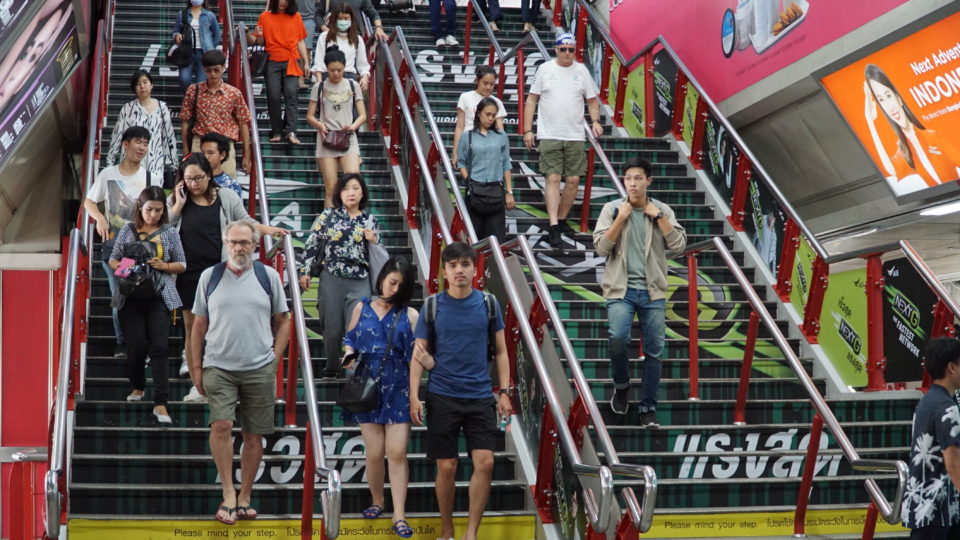A number of hotels and travel agencies in Thailand contacted by Coconuts Bangkok today all said the same thing: The Chinese are not coming.
Rattled by a series of incidents that have led to bad press about Thailand in the Chinese media, all of the businesses we contacted claimed over a 50-percent drop in Chinese tourist reservations over the last three months.
That is in line with data revealed yesterday by Jaturong Jantarang, the assistant governor of the Bank of Thailand (BOT), who said there was an 11. 8 percent decline in the number of Chinese tourists coming to the country in August, putting the overall pace of visitor growth near a 16-month low.
Coconuts Bangkok conducted interviews with four hotels and travel agencies that specialize in Chinese tour groups this morning and they all reported an alarming spike in the rate of cancellations recently, with all reporting at least a 50 percent plunge in reservations and in some cases even higher.
“In the last three days, seven tour groups have already canceled,” said an agent from Thai Box Trade & Travel Co. LTD., who requested anonymity.
“In August, there were 18 cancellations,” they added, noting that usually only about four to five groups would cancel per month prior to this year.
There appear to be four main factors behind the sudden sharp decline.
The first is the Phoenix boat sinking on July 5, which resulted in a death toll of 47, most of whom were Chinese nationals. That was followed by an outbreak of dengue fever with 39,268 cases reported nationally in the last 10 months. Then there was that viral video showing a Thai guard taking a swings at a Chinese man at Bangkok’s Don Mueang Airport last week.
And, to top it all off, there’s the impact of the trade war between China and the US that has rippled out to adversely affect numerous other countries and markets.
“Since news broke about the boat sinking, occupancy has plummeted by about 60 percent” a reservation manager at the Avana Hotel in Bangkok, which primarily services Chinese tour groups, told Coconuts this morning on condition of anonymity.
They added that it was especially unusual to see so many cancellations this week, considering the fact that this is Golden Week, China’s semi-annual 7-day national holiday period.
“I believe this is our all-time-low [in regards to Chinese tourists],” the manager said.
In fact, Japan had previously beaten Thailand to become the top destination for Chinese tourists during the holiday period, according to a survey by Ctrip.com, an online travel agent. But this year, Thailand was bumped to second place.
Meanwhile, a representative of travel agent Scenic Tour — who also requested anonymity — said they aren’t hopeful about this year’s outlook.
“I don’t think the numbers are going to get better this year. We can only hope the decline stabilizes in the next 2-3 months,” she told Coconuts.
Ittirit Kinglek, the president of Tourism Authority of Thailand (TAT) predicts a decline of two million Chinese visitors this year compared to 2017.
If the numbers continue to plummet, Thailand’s tourist-based economy will be greatly affected considering that China contributes the largest portion of tourists to Thailand, making up 28 percent of the 35 million visitor arrivals last year.
In fact, Kampon Adireksombat, the chief economist at Bangkok’s Kasikorn Securities Pcl., recently stated that Thai economic growth may be cut to 4.2 percent next year from an estimated 4.5 percent in 2018.
This Monday, TAT representatives met with the National Broadcasting Services of Thailand and Minister of Tourism and Sports to discuss efforts to rebuild the country’s relationship with China.
They concluded that the main focus should be on reestablishing trust about safety, service standards and improving transport convenience.
With the risk of losing Chinese visitors to other countries in the long-term, it is now more evident than ever that Thailand has to act quickly to win back the trust and confidence of the nation’s number one tourist market — before it is too late.




